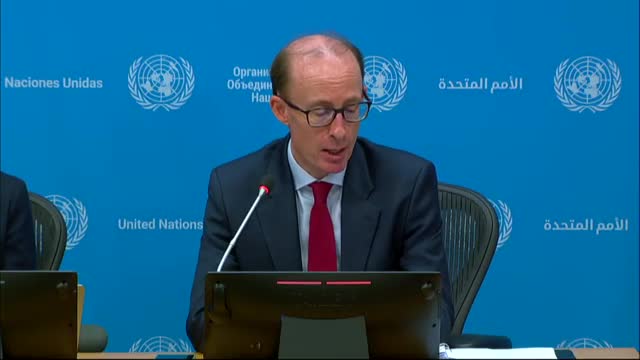UN expert says recent U.S. strikes on suspected drug vessels amount to "illegal killings" and warns against labeling cartels as terrorists
Get AI-powered insights, summaries, and transcripts
Subscribe
Summary
At a UN press briefing, the special rapporteur on counterterrorism and human rights called recent U.S. military strikes on drug-trafficking vessels "illegal killings under international law," warned against treating organized crime as terrorism and urged states to prioritize law enforcement and demand-reduction policies.
Professor Ben Saul, the UN special rapporteur on counterterrorism and human rights, told a New York press briefing that he condemns recent U.S. military strikes on suspected drug-trafficking vessels as "illegal killings under international law." He said there is no legal authority to use lethal military force on the high seas to kill suspected drug traffickers and described the attacks as inconsistent with the law of the sea and criminal-law approaches to organized crime.
"I condemn these strikes as illegal killings under international law," Saul said, adding later in the briefing, "I see this as murder." He referred to an eighth strike in the Pacific that followed earlier strikes in the Caribbean and said governments whose nationals were killed have protested; he said relatively few other states have publicly condemned the operations.
Saul argued that labeling drug cartels as terrorist organizations risks expanding the use of military force and summary measures against suspected traffickers. "Organized crime, including drug trafficking, is crime for profit," he said. "Terrorism is political violence." He urged states to address cartels through criminal-law frameworks, to pursue demand-reduction public-health strategies and to confront the flow of weapons that arm cartels.
On legal accountability, Saul said that if U.S. strikes killed nationals of ICC state parties or rose to the level of a systematic attack, there could be grounds for ICC jurisdiction. He told a reporter that "once you've...start committing 8 and counting strikes, murdering over 30 people, and you've announced this as a state policy, I think you're approaching International Criminal Court territory." He also recommended criminal investigations of those who order or carry out unlawful strikes and called on military personnel to refuse illegal orders.
Saul cautioned that interception of vessels at sea is governed by the law of the sea and should follow law-enforcement approaches — warnings, graduated force and arrest — rather than deliberate missile strikes intended to kill everyone on board.
He also highlighted the regional spread of states classifying gangs as terrorist organizations, naming Canada, Ecuador, Honduras, Venezuela and Argentina as examples cited in his remarks, and said the trend is growing. Saul recommended that states tackle root causes, including demand and arms flows, and consider decriminalization debates as part of a broader public-health approach.
The rapporteur said he has raised these concerns formally with multiple governments and has not received responses that allay his worries in several cases.
